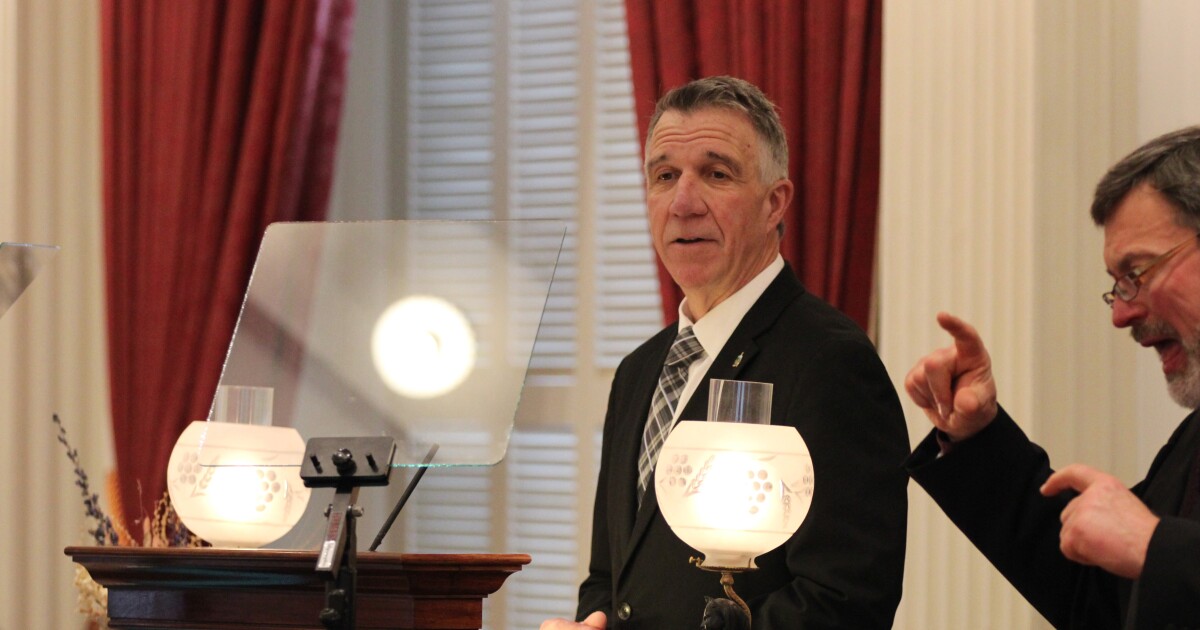Vermont Cannabis Bill H.612 Passes Without Governor’s Signature
LOS ANGELES- Vermont Governor Phil Scott allowed cannabis bill H.612 to become law without his signature, marking significant regulatory changes to the state’s cannabis landscape. The bill, which aims to improve regulations surrounding cannabis and hemp-derived products, includes measures to ban psychoactive hemp-derived products.
Scott highlighted that the bill presents both advantages and drawbacks, noting it “takes some steps forward, and some steps back” in terms of ensuring product safety. The legislation addresses a loophole related to THC-infused hemp products and ensures continued access to medical cannabis for individuals with significant, documented medical needs. It also introduces safeguards for people under 21 who seek more potent medical products and responds to municipal concerns about setbacks for outdoor cannabis cultivators.
However, Scott expressed concerns about potential increases in use among individuals without valid medical prescriptions due to the availability of high-potency medical cannabis products in retail stores.
Key Provisions of H.612
- Regulation of Hemp-Derived Products: The bill codifies existing rules from the Vermont Cannabis Control Board, limiting the sale of intoxicating hemp-derived products and regulating them as cannabis products if they contain more than 0.3% total THC.
- Municipal Control: It provides municipalities the authority to establish preferred cultivation districts and influence where cannabis can be grown.
- Medical Use Endorsement: Adult-use retailers can now serve medical patients with the same authorizations as medical dispensaries, including curbside delivery and tax-exempt sales. Retailers will pay an additional $250 charge for this endorsement on top of the $10,000 license fee.
- Potency Caps and Tax Exemptions: Retailers with a medical endorsement can sell products exceeding potency caps to medical patients, and sales to medical patients will be exempt from taxes.
- Expanded Medical Registry and Reduced Fees: The bill adds ulcerative colitis to the list of conditions qualifying for the medical registry and extends renewal terms from one to three years. Fees for medical dispensaries are reduced, with application costs decreasing from $2,500 to $1,000 and annual charges from $25,000 to $5,000. The initial $20,000 fee is eliminated.
Legislative Journey and Local Reactions
The bill, which cleared the Senate and House after adjustments, received mixed reactions. Geoffrey Pizzutillo, executive director of Vermont Growers Association, noted over a dozen sections in the legislation and acknowledged compromises on cultivation districts. Local leaders applauded the ban on psychoactive hemp-derived products like delta-8 THC.
Rep. Matthew Birong emphasized the importance of banning synthetic hemp-derived intoxicating products currently unregulated and found in gas stations and convenience stores. He also stressed adopting medical cannabis statutes to preserve patient access, as the current model for medical dispensaries faces economic challenges alongside adult-use retail stores.
Governor Scott’s decision to allow H.612 to pass into law without his signature reflects a nuanced approach to balancing the benefits and risks associated with cannabis regulation. The bill’s passage marks a significant step in Vermont’s evolving cannabis landscape, ensuring tighter regulation of hemp-derived products while maintaining access for medical patients.



































